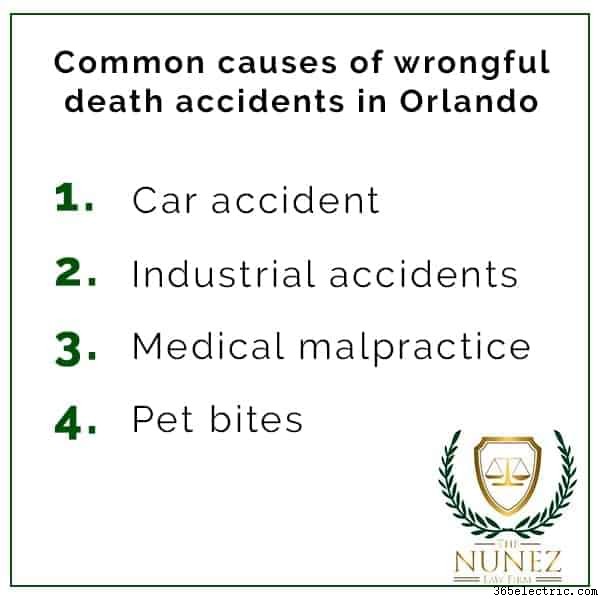フロリダで大音量で音楽を再生すると止められる?
フロリダ州には、25 フィート以内での音の再生を禁止する、米国で最も奇妙な法律の 1 つがあります。
この規則は、個人の住居だけでなく、自動車を運転する人にも適用されます。
オーランドでは、警察官によるそのような法律の施行が、車を止めて薬物をチェックする言い訳になっています。しかし、スマートフォンの仕様に注意を払うと、25 フィートは非常に小さいことがわかります。これは、一部のモバイル デバイスはちょうどその距離で聞こえるからです。
警察官に止められた場合は、最低 30 ドルの罰金と追加の法廷査定が課せられます。
騒音制限の重要な値は?
フロリダ州は 1949 年に初めて騒音法を執行し始めました。古い法律の下では、騒音条例はフロリダ州憲法第 2 条第 7 項によって管理されていました。
1996 年までの数十年にわたって、人間と環境にとって危険な重要な騒音データを特定するために、さまざまな研究が行われました。

州議会は、スケールの測定はデシベルで決定され、サイズは有名なリヒタースケールと同じになると決定しました。しかし、法律の規定を適切に適用するために、デシベル(dB)とヘルツ(Hz)の二重システムを使用して分析することが決定されました。
研究者は、10 デシベルは人間にとって危険であると判断しました。この基準では、人は騒音の 2 倍の部分を受け取るからです。
議員は、特別なデシベル メーターを使用して A スケールのみでラウドネスを測定することを義務付けています。実際、この機器には 2 つの対数スケールがあり、データを dB と Hz で表示します。
長い間、騒音が人体に及ぼす悪影響についての研究が行われ、州検事の参加を得て調査が行われ、型にはまらない解決策が導き出されました。
この研究には、昼夜を問わず人体を研究している科学者によって実施されたデータが含まれていました。科学者は、夜間の人体への干渉は約 35 dB であり、日中の家の外では 50 dB であると判断しました。
これらの指標を 15 dB 増加させる規制されていない騒音は、すでに危険で重大なものとして認識されています。この数字は、車で音楽を聴く違反者に使用されます。
法の適用の特徴
1999 年、フロリダ州の第 5 地方控訴裁判所 (第 5 地方控訴裁判所または第 5 DCA) は、騒音法が違憲であるとの判決を下しました。ただし、州の一部の地域では、大音量の音楽が原因で警察官が車を止めることができる場合がまだ適用されます.
特に、第 5 の DCA では、臨界音域が 25 フィートから 100 フィートに増加しました。それにもかかわらず、オーランド警察は、第 5 回 DCA の決定が彼らの郡には適用されないと信じて、大音量の音楽ファンに 25 フィートに基づく昔ながらの方法で罰金を科しました。
かつて、セントラル フロリダのすべてのドライバーの運命を変えた真の革命がありました。いわゆるモンゴメリー VS 州事件 (モンゴメリー VS 州、36 FLW D2046 (Fla. 5th DCA 9/16/11) は最終的に記録を正しました。
モンゴメリーという姓の原告は、法律の違憲性に異議を唱え、法廷とコミュニティに対して、あいまいな言葉を削除する必要があることを証明しました。まったく聞こえない人。」
裁判所は、「騒音法」は曖昧に解釈されるべきではなく、規定の適用は「過度に」あるべきであると判断しました。
Because the Act prohibits playing loud music, but it does not prohibit playing that music if there are “business” or “political” reasons. Businesses cannot receive more rights in this case than individuals. That is a provision where businesses are allowed “everything,” and private citizens are not allowed “anything” is a violation of free speech.
Does Loud Music Affect Traffic Safety?
A police officer who records a wrongful death accident caused by loud music, in the report indicates a factor – distracted driving.
Lawmakers in Florida have established a critical noise threshold not only for those around them but also for the driver himself, which must not be exceeded.
Exceeding the number of decibels by 10-15 points results in the driver not hearing the sound of the signal of other accident sections and provokes dangerous moments on the road, leading to a car accident.
This number includes accidents caused by drivers listening to loud music and not responding to other accident sites. In Florida, listening to loud music as an element of distracted driving is considered “auditory distraction,” in which the music prevents the driver from hearing important signals outside the car, such as the horns and sirens of other vehicles.
How to Apply the Provisions of the Noise Law to Motorists?
Since the vague wording of the Act still has its force in Florida, it is customary to assume the following rules.
- It is prohibited to play loud music from a distance of 50 feet, and only at specified times, namely from 10 p.m. to 7 a.m.
- Loud music may not be played over 300 feet (such as on a bridge) and may not be played with the windows and doors closed.
- A police officer may give you a “warning” where you must turn off the music within 5 minutes.
- It is forbidden to play music, regardless of distance, near schools and churches.
- Noise law does not apply to agricultural vehicles, ambulances, emergency vehicles, emergency vehicles.
- The law does not apply to the human voice if one drives a car and conducts a sporting event. In this case, the sporting event must be organized and only outdoors.
- Individual counties and cities in Florida have the right to set their own minimums and distances for playing loud music, but the minimum threshold is noted at 25 feet.
If there is clear evidence of a violation of the Act, the police officer, in addition to issuing a “warning”, has in some cases to impound the vehicle.
The first fine will be $30 and additional court costs. A repeat case would face a $500 fine and plus court assessment. Despite the ambiguity of the noise law, the best recommendation is still to improve the soundproofing of your car.
Pay special attention to the soundproofing of the doors because it is the most problematic part of the car, where the loud music comes from.
References and Resources:
https://jgcrimlaw.com/blog/orlandos-loud-music-statute-now-unconstitutional/
https://legalbeagle.com/7221539-loud-party-music-florida-laws.html
https://www.brookslawgroup.com/distracted-driving-statistics-2021/
